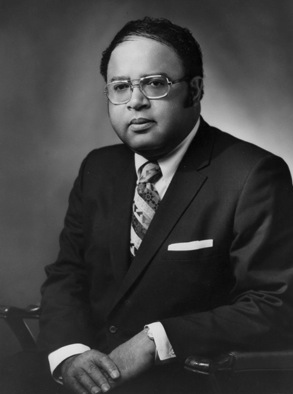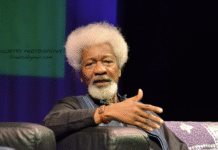
(Photo Credit: Wikipedia)
”Until Muhammad Ali came along, Diggs was the most popular American in Africa.” Representative John Conyers (D-MI) said that Mr. Diggs had been heavily criticized for his many trips to Africa, but he insisted that they paid dividends to the United States. ”He was creating a support system for the United States in Africa,” Rep. Conyers said.
Charles Cole Diggs, Jr., the first African American congressman from Michigan, was born in Detroit, Michigan on December 2, 1922. After serving in the United States Air Force during World War II, Diggs earned his Bachelor of Science degree in mortuary science from Wayne State University in 1946. In 1951, he was elected to the Michigan State Senate and in 1954 was elected to the United States House of Representatives.
In 1969, Diggs was a key player in founding the Congressional Black Caucus. From 1973 to 1978, he chaired the House District Committee which oversaw the affairs of Washington, D.C. During that time, he set in motion the process that led to a Home Rule Charter which allowed D.C. residents to elect their own government. He also chaired the African Affairs Subcommittee where he advocated for the elimination of apartheid in South Africa and U.S. aid to newly independent African nations. TransAfrica, a think tank devoted to African affairs, was founded in Diggs’ office.
In 1978 Diggs was indicted on charges that he had taken kickbacks from three of his Congressional employees. Mr. Diggs, who testified on his own behalf said the employees had made their salaries available willingly when he was in ”very dire financial straits.”
The jury found him guilty of all 29 counts against him in October 1978, but he was re-elected to his 13th term the next month while awaiting sentencing. Later that month, he was sentenced to up to three years in jail. Diggs resigned from Congress in 1980 and died August 24, 1998.
His biography, “The Untold Story of Charles Diggs: The Public Figure, The Private Man,” was published in 1988. Despite his political fall, Diggs’ political rise opened many doors for blacks in Congress, made issues impacting blacks a major part of the Democratic agenda and helped newly independent African nations socially, economically and politically.
The Akosua Report: Facts on The African Diaspora, is written by Akosua Lowery. Follow her on Twitter @AkosuaLowery.
Like The Burton Wire on Facebook. Follow us on Twitter @TheBurtonWire.








